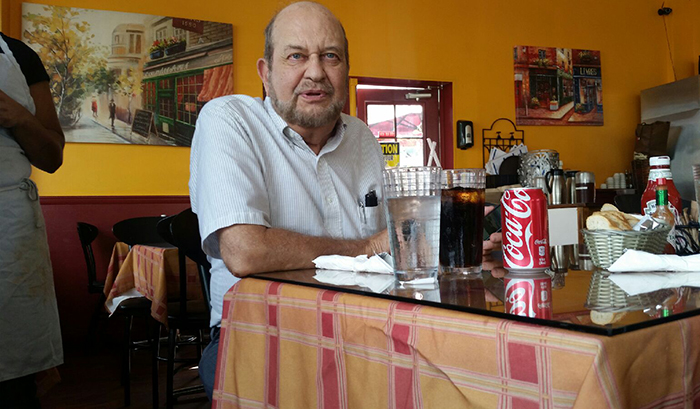Once California’s primary election season ends in early June, most candidates go into a sort of statis for three months, until just before the traditional Labor Day start of the fall political season.
If Loretta Sanchez is smart – and no one ever suggested she’s not – she will not wait months before resuming an aggressive campaign for the U.S. Senate. Sanchez on Election Night in early June eased into a November runoff against state Atty. Gen. General Kamala Harris, beating out five Republicans who split the GOP vote while Democrats – already more numerous – were only divided two ways.
There is every reason to believe that if Ms. Sanchez slacks off over summer vacation, she will put herself out of politics indefinitely. All post-primary polling has shown she lags far behind Ms. Harris.
Slacking off is a California political tradition. To keep campaigning means keeping up the spending and energy levels of the primary season. Just a month before the June vote, Ms. Sanchez had raised slightly over $2 million, a paltry sum compared with the $30 million to $40 million that’s usually spent on successful top-of-ticket California races.
The best historical lesson about what can be accomplished by staying active on the campaign trail was taught in 1978 by Gov. Brown, when he sought reelection to a second term during his first gubernatorial era.
When the primary ended that year, incumbent Brown trailed his upcoming Republican challenger, the popular state Atty. Gen. Evelle Younger, a former district attorney of Los Angeles County, in all polls. California was not yet a Democratic stronghold in that era.
Mr. Younger took the traditional path. Just after the primary, he left for Maui and stayed on vacation almost a month, figuring no one would heed politics until summer’s end. But that year was volatile, just like 2016. In the June vote, Californians had passed the landmark Prop. 13 property tax limits over Mr. Brown’s objection. So there was plenty to talk about.
Changing Teams
And Mr. Brown talked plenty. Overnight, he pivoted from the Jarvis-Gann Initiative’s leading opponent to its foremost enabler. He traveled up and down the state, campaigning not merely for himself but also discussing how the new property tax law could be codified and made to work smoothly without destroying public education, parks and other services the initiative’s opponents had worried about.
Mr. Brown put up two series of television commercials that summer, too. He was seemingly everywhere, campaigning far harder than his current older incarnation ever has.
This buried Mr. Younger, who became a sure loser in the fall. He was finished politically.
Mr. Brown understated later that “you get some results when you advertise prolifically and no one else is on the air.”
No one has needed even to consider this kind of summer campaigning in recent years, when incumbents like Mr. Brown, Arnold Schwarzenegger and U.S. Sens. Dianne Feinstein and Barbara Boxer have not felt seriously threatened after the primary.
Partly that has been because California became safe for Democrats, partly because none of their opposition was either well-funded or determined enough to go on a summer offensive.
Helping make summertime campaigning effective is the reality, documented in a broad body of psychological research going back to World War II, that the more often people hear positive messages about a person they have only recently begun to like, the more solid that feeling becomes.
This could make a post-primary offensive from Ms. Sanchez extremely effective. Even though Ms. Harris has been in office six years and has vast poll leads, she is lesser-known than many other public officials of similar status.
It also means, of course, that Ms. Harris, could conduct a summer offensive of her own, especially since she had far more money on hand than Ms. Sanchez at the last reporting date. A radical departure from traditional politics seems more up the Sanchez alley, since she is by far the more outspoken of the two.
That is a quality she will need to take advantage of. She starts the runoff as a distinct underdog, just as she did in the primary season.
Mr. Elias may be contacted at tdelias@aol.com. He is author of the current book “The Burzynski Breakthrough: The Most Promising Cancer Treatment and the Government’s Campaign to Squelch It,” now available in an updated fourth edition. For more Elias columns, go to www.californiafocus.net








